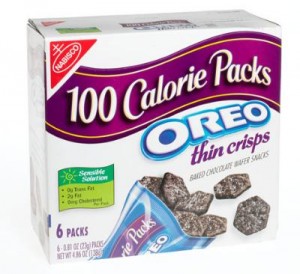 Science is spectacular. Medicine is magnificent. However, nutrition is one of the most elusive and perplexing subjects ever. We have come to rely on detailed science, disease-based medicine, and messages from the food industry to determine our ideal health choices. Unfortunately, micromanaging our dietary decisions based on these driving forces is only making us sicker, fatter, and more miserable. Why is this? A multitude of factors comes into play. Physicians strive to treat illnesses by quelling symptoms and not addressing the actual cause. Scientific research, although critical to our collection of data, is limited in many ways. We can only assess a few variables at a time, so we come away with facts such as blueberries are high in antioxidants, vitamin C prevents scurvy, and statins reduce blood cholesterol.
Science is spectacular. Medicine is magnificent. However, nutrition is one of the most elusive and perplexing subjects ever. We have come to rely on detailed science, disease-based medicine, and messages from the food industry to determine our ideal health choices. Unfortunately, micromanaging our dietary decisions based on these driving forces is only making us sicker, fatter, and more miserable. Why is this? A multitude of factors comes into play. Physicians strive to treat illnesses by quelling symptoms and not addressing the actual cause. Scientific research, although critical to our collection of data, is limited in many ways. We can only assess a few variables at a time, so we come away with facts such as blueberries are high in antioxidants, vitamin C prevents scurvy, and statins reduce blood cholesterol.
In the past several decades, a gargantuan amount of data has been collected identifying compounds in foods including thousands of phytochemicals, micronutrients, amino acids, and fatty acids. Scientists have discovered mechanisms to explain that ample servings of fruits and vegetables reduce your risk for certain cancers and a low fat, plant-based diet can halt atherosclerosis and reverse heart disease and type 2 diabetes. Physicians can use biomarkers to ensure adequate intake of necessary nutrients, and proper lifestyle behaviors. They can also guestimate your risk for certain chronic diseases. Of course, biomarkers are also used for diagnosing these same diseases and others.
 However, how much do these markers and diagnostic monitors really reveal? Does the fact that we have adequate vitamin A in our bloodstream indicate we are consuming plenty of cancer-fighting carotenoids? Does achieving that same blood level coming from supplements have identical protective mechanisms as when the vitamin A comes directly from the original source? Further, if we have reached a certain goal in terms of numbers, does that mean our risks for certain cancers are minimized? Do we know the ideal cholesterol level we need to strive for in order to be heart attack-proof?
However, how much do these markers and diagnostic monitors really reveal? Does the fact that we have adequate vitamin A in our bloodstream indicate we are consuming plenty of cancer-fighting carotenoids? Does achieving that same blood level coming from supplements have identical protective mechanisms as when the vitamin A comes directly from the original source? Further, if we have reached a certain goal in terms of numbers, does that mean our risks for certain cancers are minimized? Do we know the ideal cholesterol level we need to strive for in order to be heart attack-proof?
 Unfortunately, the evidence is not clear. By virtue of its essence, scientific research is restricted. It is very difficult-if not impossible-to perfectly perform a health study where all variables are controlled and where long-term results can be attained. In the perfect study, researchers could take a large population (the more, the merrier, and the more statistically significant) and place them in an environment where all the details of their lives can be monitored for many years (the longer, the better, and the more statistically significant). During this time, all meals would be provided, where each bite is quantified by scientists to know precisely how many calories, fat, protein, carbs, vites, mins, fiber, etc. went into each meal. All exercise would be closely monitored for type, intensity, duration, and frequency. Stress levels would be documented. Biomarkers, medications, and other health parameters would be checked regularly at strategically determined times. Ultimately, after many years of careful quantification, results would be documented in peer-reviewed literature and we would have more specific answers to our questions about what healthy really looks like.
Unfortunately, the evidence is not clear. By virtue of its essence, scientific research is restricted. It is very difficult-if not impossible-to perfectly perform a health study where all variables are controlled and where long-term results can be attained. In the perfect study, researchers could take a large population (the more, the merrier, and the more statistically significant) and place them in an environment where all the details of their lives can be monitored for many years (the longer, the better, and the more statistically significant). During this time, all meals would be provided, where each bite is quantified by scientists to know precisely how many calories, fat, protein, carbs, vites, mins, fiber, etc. went into each meal. All exercise would be closely monitored for type, intensity, duration, and frequency. Stress levels would be documented. Biomarkers, medications, and other health parameters would be checked regularly at strategically determined times. Ultimately, after many years of careful quantification, results would be documented in peer-reviewed literature and we would have more specific answers to our questions about what healthy really looks like.
In the meanwhile, while these hypothetical perfect data are being collected, we need to face the music and look at the consequences of what we are doing as a society with the actual information we currently do have access to. We have evolved into a culture obsessed with nutrients and popping pills as a quick fix, focused on the details and not the wider interpretation.
As a Registered Dietitian, I see clients for nutrition counseling as my day job and I regularly hear concerns such as:
- Will I get enough protein?
- How can I get my calcium if I don’t consume dairy?
- I am worried about becoming anemic if I don’t eat meat.
- Where do I get my omega-3 fatty acids?
- I don’t eat carbs.
After decades of taking this approach of hyper-analyzing our micro- and macronutrient intakes and popping supplements, are we any healthier? The answer is a loudly resounding NO!
 The food and pharmaceutical industries are certainly benefitting from this misconception. Have you been in the “food” aisles at your local supermarket lately? You can be reassured that your nutrition is savvy because you can buy and eat omega-3 fatty acid-infused cereals (never mind the sugars, artificial colors, flavors, sweeteners), skim milk (yes, no fat, but still plump with cholesterol, hormones, steroids, antibiotics, pesticides, and other unmentionables), and protein bars (because we are led to believe that the amount of protein you consume defines your health and weight status).
The food and pharmaceutical industries are certainly benefitting from this misconception. Have you been in the “food” aisles at your local supermarket lately? You can be reassured that your nutrition is savvy because you can buy and eat omega-3 fatty acid-infused cereals (never mind the sugars, artificial colors, flavors, sweeteners), skim milk (yes, no fat, but still plump with cholesterol, hormones, steroids, antibiotics, pesticides, and other unmentionables), and protein bars (because we are led to believe that the amount of protein you consume defines your health and weight status).
 And shall we discuss drugs? If pellagra is a niacin deficiency and beriberi is a thiamine deficiency, is high cholesterol a statin deficiency and high blood pressure a beta-blocker deficiency? We need to address the cause. For example, high cholesterol is a problem that can usually be cured with proper lifestyle choices. Of course, it is easier to simply pop the medication prescribed by your physician than to truly assess and change your diet. However, there are side effects. Meds used to treat high cholesterol are notoriously tough on your liver. Is that a risk you are comfortable taking? What if you can make some dietary adjustments and not have to risk the happiness and safety of your liver function or have to be a slave to a daily pill regimen?
And shall we discuss drugs? If pellagra is a niacin deficiency and beriberi is a thiamine deficiency, is high cholesterol a statin deficiency and high blood pressure a beta-blocker deficiency? We need to address the cause. For example, high cholesterol is a problem that can usually be cured with proper lifestyle choices. Of course, it is easier to simply pop the medication prescribed by your physician than to truly assess and change your diet. However, there are side effects. Meds used to treat high cholesterol are notoriously tough on your liver. Is that a risk you are comfortable taking? What if you can make some dietary adjustments and not have to risk the happiness and safety of your liver function or have to be a slave to a daily pill regimen?
Thus with all of these forces preventing us from seeing the big picture, I challenge you to step back and look at the birds eye view. Are you not at your ideal weight because of a protein deficiency? Do you have heart disease because you consume too many omega-6 fatty acids and not enough omega-3’s? What I see with my clients, students, and everyday person I run across is an obsession with nutrients, and a distrust of food. If I could advise people on where to focus their energy, I suggest a return to real whole plant foods. Although there are limitations with nutrition research, we know without doubt that whole plant foods provide precisely what nature intended us to consume.
This is the nature of reductionism. We are taught to look at the details…to quantify and calculate what we eat as if those numbers are a magic formula. This is simply not so. Many factors come into play with respect to optimal health and it’s virtually impossible to reduce them to their parts. The whole is much, much greater than the sum of food’s components and it is now time to widen our view from the details and broaden to the whole. Eat intact plant foods without worrying about its components and you will thrive…






This Post Has 13 Comments
Great post Jules!
Thank you so much, Christy!!!
I believe in plant based eating!
I believe in plant based eating……
Pingback: Download Full Version Free Software
Pingback: Free hd porn video in Full length at porn4tube.org ! The best sex
Pingback: lise winicki
Pingback: meilleur traiteur rabat maroc
Pingback: traiteur rabat
Pingback: traiteur rabat
Pingback: ingenieurs marocains
Pingback: Download Fast Traffic Bot Software for Free with Unlimited Access
Pingback: Read my honest review of Fast Traffic Bot and see why it doesn't live up to the hype and find out better ways to drive traffic.